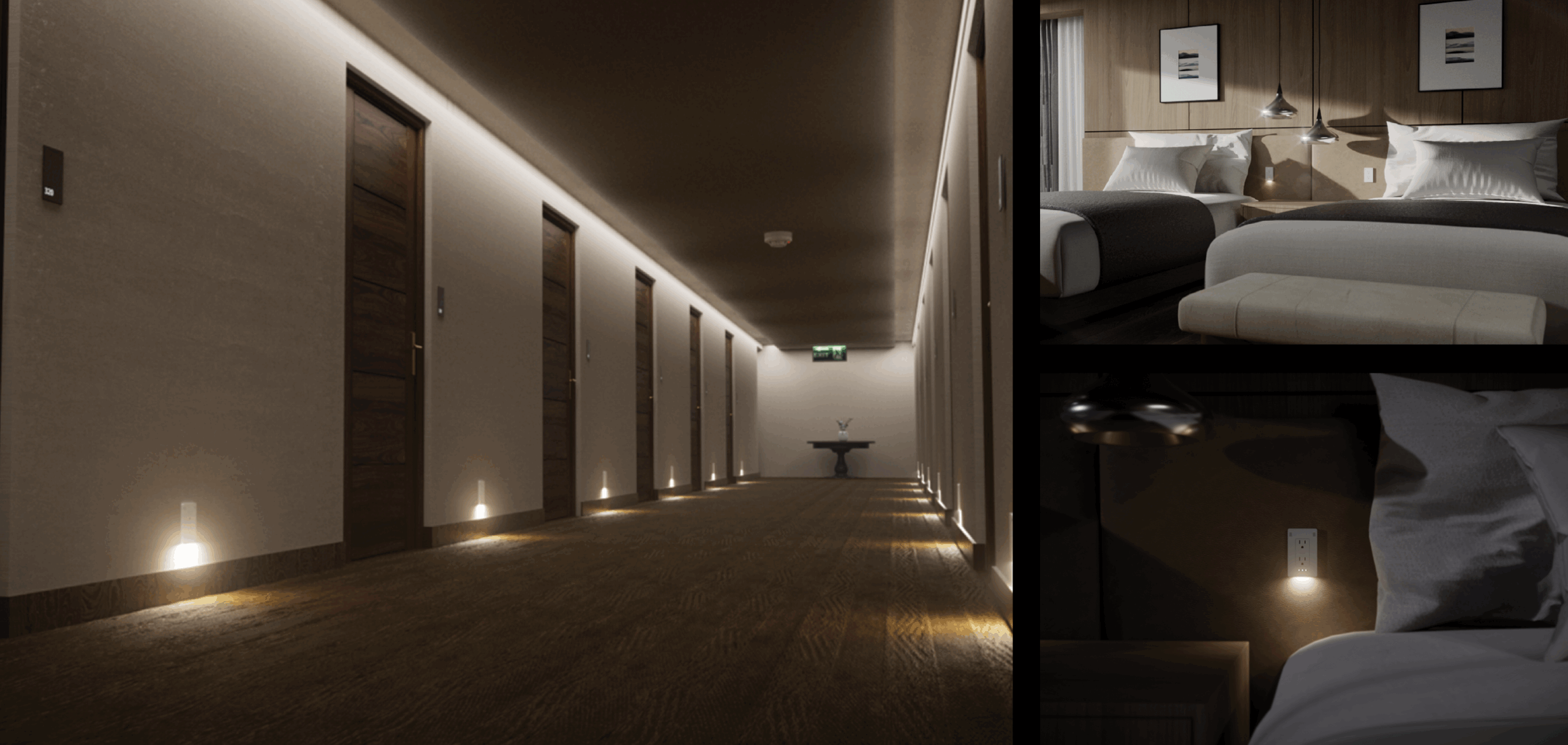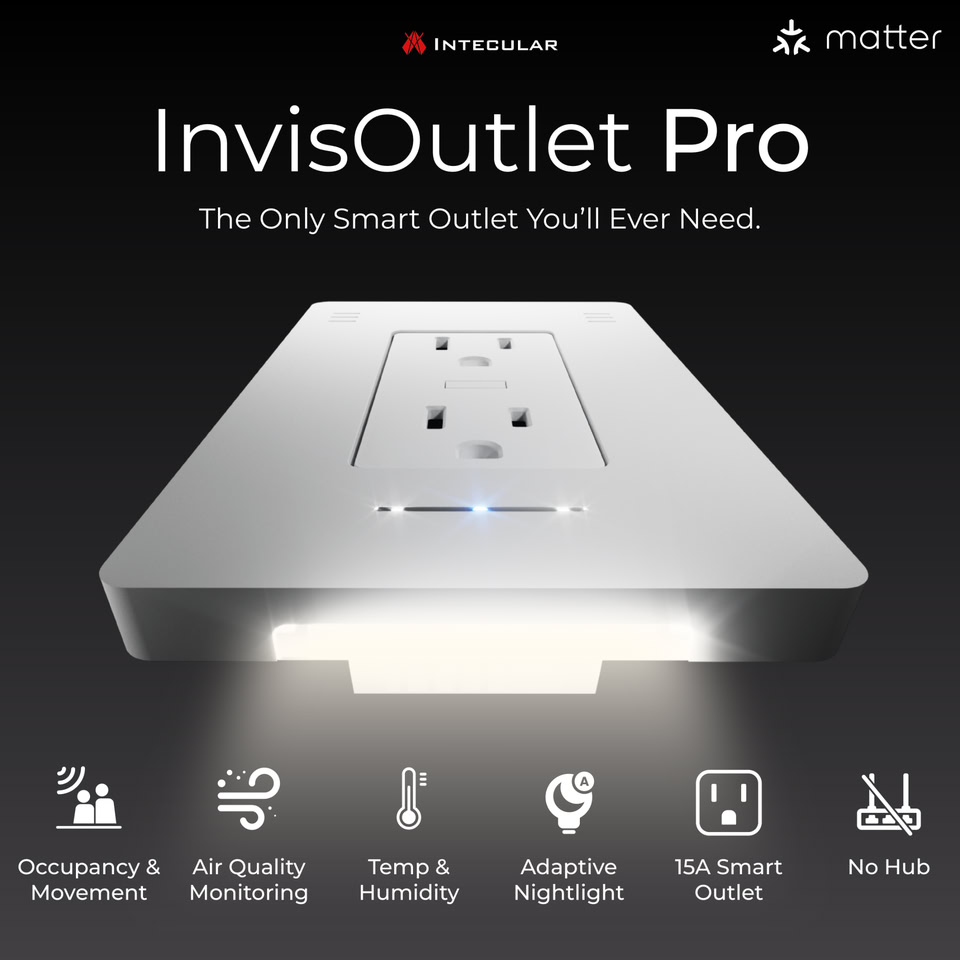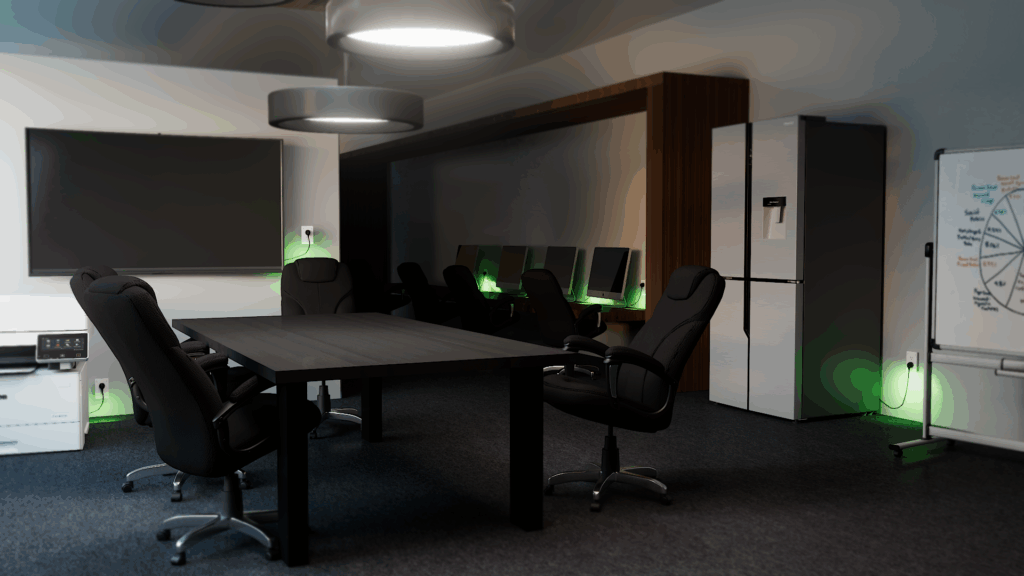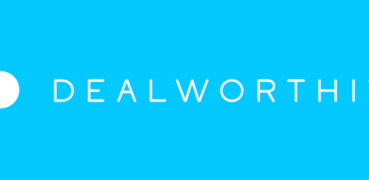From his days as a software engineer at Microsoft to becoming a real estate tech entrepreneur, Daniel Tsikata’s journey reflects a common startup origin story: he encountered a problem...
Intecular’s Smart Outlet Is Simplifies Smart Homes and Transforms Connected Living




Smart homes are packed with technology, but most of it does not work together. The average American home has over 20 smart devices, yet less than 20 percent of them communicate seamlessly, says Leon Xue, Co-founder and COO of Intecular, a company revolutionizing smart home integration.
“The average American home has over 20 smart devices, and less than 20% of them work together. To us, that is absurd,” he says.
Despite promises of simplicity and connected living, the smart home industry has delivered a fragmented landscape of single-function devices that overcrowd outlets and create clutter. Intecular’s innovative approach transforms the ordinary electrical outlet into a multi-functional smart hub, offering a new path toward true integration.
The Smart Home Paradox
The irony of today’s smart homes is striking: devices designed to simplify our lives often complicate them instead. “When you have 21 smart devices, your Alexa and air quality monitor fight for outlet space with your toaster,” Xue explains. “That clutter is not what we want.”
This fragmentation creates a frustrating user experience. Most consumers purchase single-function devices: an air quality monitor from Amazon, a motion sensor from Best Buy, a smart thermostat from Home Depot, each requiring its own app and power source, with minimal integration between them.
The Invis Outlet Solution


Intecular’s flagship product, the Invis Outlet Pro, takes a fundamentally different approach by enhancing existing infrastructure rather than adding more devices.
“We wanted a consistently powered device without worrying about batteries or cords,” Xue explains. “The most consistent power source is direct home power.”
The Invis Outlet Pro features a modular cover plate that detaches from the in-wall unit. This slim cover plate, just a few millimeters thick, contains multiple sensors:
- Air quality monitoring: Measures CO2, VOCs, and provides an overall Air Quality Index
- Occupancy detection: Uses mm-wave radar technology to detect human presence, not just motion
- Temperature and humidity sensors: Monitor environmental conditions
- Adaptive nightlight: Automatically adjusts brightness based on ambient light levels
All functions are controlled through a single app and are compatible with major smart home platforms like Google Home and Alexa. For commercial applications, the system integrates with existing property management dashboards through APIs.
From Kickstarter to Commercial Success


Intecular’s journey began with a successful Kickstarter campaign that raised over $160,000 from more than 800 backers who purchased 2,200 units.
“The funding helped, but what was more valuable was understanding there’s genuine interest and a clear use case,” Xue says. “That’s when it goes from a few geeks developing a device to something we should bring to market.”
Unlike many crowdfunded projects that never deliver, Intecular successfully fulfilled all orders, though it took 18 months. “You’ll never find a more loyal, understanding, patient and supportive group of people in any sort of launch,” Xue says of their backers.
Now, the company is expanding beyond direct-to-consumer sales into major retail and commercial channels, including partnerships with Home Depot and HD Supply, which serves single-family rentals, hospitality, and multi-family properties.
The Commercial Value Proposition
For commercial property owners and managers, Intecular’s value proposition is compelling and data-driven. As Xue puts it, “It’s less about the wow factor and more about how much money you can save me, and how I can improve guest experiences.”
Intecular has already installed units in the Holiday Inn Express and Suites at the Mall of America, demonstrating real-world applications:
Smoking Damage Prevention
- 10% of non-smoking rooms are smoked in each month
- Average cost of smoking damages: $1,100 per incident
- Real-time air quality monitoring sends data at three-second intervals
- Historical tracking allows properties to defer costs back to guests
- Potential savings: $5,500 annually by resolving just five incidents
HVAC Energy Savings
- Smart AC controls can reduce hotel HVAC energy consumption by 20-30%
- HVAC typically accounts for 40-50% of a hospitality building’s total energy consumption
- A 200-unit hotel can save up to $20,000 annually
- Mm-wave radar detects actual human presence rather than just motion, avoiding false readings that disturb sleeping guests
“If someone turns in their sleep and triggers a motion sensor, the very loud PTAC system will kick on,” Xue explains. “Or if they’re a still sleeper, the temperature will rise to a preset setting. Both are massive guest experience errors that our more accurate occupancy detection solves.”
For a 200-unit hotel, consolidating multiple smart functions into the Invis Outlet Pro can reduce initial project costs by approximately $70,000
The Road Ahead
With product development complete and major distribution channels opening, Intecular is positioned for significant growth. The company is currently fundraising and aims to sell 20,000 units in the next 12 months.
While the founding team is young, they’ve surrounded themselves with industry veterans. “Our advisors and head of partnerships have all been in this industry for a combined 60 years,” Xue notes.
Intecular is following a growth model similar to Ring, the smart doorbell company that started with crowdfunding and expanded through retail before being acquired by Amazon. In fact, one of their strategic advisors was an early employee at Ring who helped guide that company’s growth.
“We’re really aiming for the billions,” Xue states confidently. “I believe we have the team, ambition, and pace to scale this at the same rate as Ring.”
Similar Articles
Explore similar articles from Our Team of Experts.


In an era where institutional investors like Blackstone are dominating the single-family home market, one startup is working to level the playing field for individual investors. Coffee Cloze...


When Jeff Cheung attended Harvard Graduate School of Design, he wasn’t just pursuing another degree – he was searching for answers to California’s escalating housing crisis. To...


“Today, it’s all done through email. Buyers are receiving these emails… it’s very inefficient, essentially spammy and chaotic,” explains Gary Kao, Managing Dire...


What started as an effort to democratize iBuying for real estate agents has evolved into a rapidly growing FinTech platform serving real estate investors. homebldr, founded in February 2021,...




